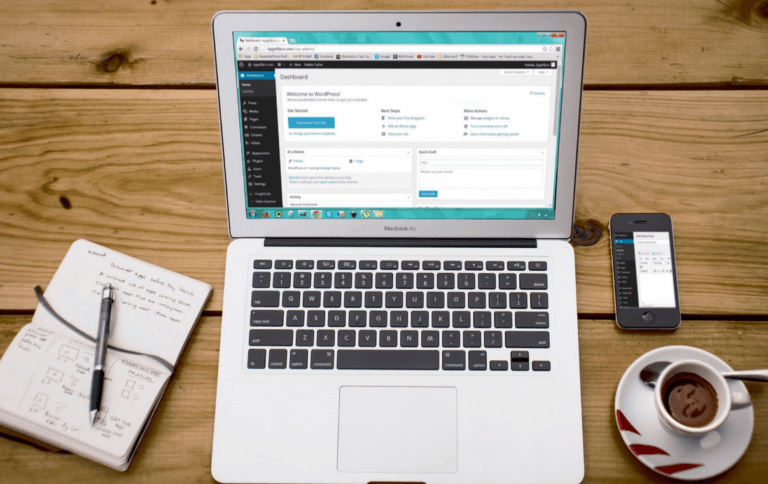The Complete Guide on How to Become an Event Planner
If you’re thinking about becoming an event planner, you’ve come to the right place. This guide will cover everything you need to know about what it takes to become an event planner and what type of career opportunities are available to you.
So whether you’re just starting in your career or looking for a new opportunity, here’s the complete guide on how to become an event planner!
Table of Contents
Decide What Type of Event Planner You Want to Be
There are many different types of event planners, each with its own strengths and weaknesses. To decide what kind of event planner you would like to be, it is essential to consider your own skills and interests.
Non-Profit Organisations
If you are interested in helping others and have strong organisational skills, you may want to consider becoming a non-profit event planner.
Non-profit event planners are responsible for organising fundraising events and other special occasions for their organisation. They often work with volunteers and other community members to ensure that the event goes off without a hitch.
Freelance Consulting or Social Event Planning
If you enjoy working with people and have a creative flair, freelance consulting or social event planning may be the right choice. As a freelance consultant, you will be responsible for planning all aspects of a client’s event, from the initial brainstorming session to the final farewell party.
As a social event planner, you will be responsible for planning social events, from weddings and birthday parties to charity galas and corporate events.
Corporate Event Planner
If you are interested in event planning but do not want to work on a freelance basis, you may consider becoming a corporate event planner.
Corporate event planners work for companies that need help organising events such as trade shows, product launches, and sales meetings. They often work with a team of vendors to ensure that the event goes off without a hitch.

Understanding an Event Planner’s Duties
Before you can become an event planner, it is essential to understand the duties involved in the job. An event planner’s duties can be divided into three categories: pre-event, during-the-event, and post-event.
Duties Before the Event
Pre-event duties include creating a timeline, arranging for catering and event space, and organising transportation.
- Creating a Timeline: An event planner’s most important tool is a well-organised timeline. A good timeline will list all tasks that need to be completed and when they need to be completed. It will also include contact information for all people involved in the event, from the caterer to the DJ.
- Arranging Catering and Event Space: An event planner is responsible for setting up catering and event space. This can involve negotiating rates with caterers, finding a venue that meets the client’s needs, and arranging for furniture and other equipment.
- Organising Transportation: Event planners are also responsible for organising transportation for guests and vendors. This may involve reserving buses or trains, hiring a shuttle service, or renting cars for the event.
Duties During the Event
During-the-event duties include ensuring that the event runs smoothly, handling any emergencies, and ensuring that all guests have a good time.
- Ensuring That the Event Runs Smoothly: The most important job of an event planner is to make sure that the event goes smoothly. This involves keeping track of the schedule, dealing with unexpected problems, and answering any guests’ questions.
- Handling Emergencies: An event planner must be prepared to handle any emergency, from a broken pipe to a food poisoning scare. They must be able to think on their feet and make quick decisions to keep the event on track.
- Making Sure Guests Have a Good Time: Event planners are also responsible for ensuring that guests have a good time. This may involve arranging for entertainment, planning activities, and providing that the venue is decorated appropriately.
A professional event management software by Eventtia can help with all these important aspects that can be hard to track.
Duties After the Event
Post-event duties include sending out thank-you notes, compiling a list of vendors, and preparing an event report.
- Sending Out Thank-You Notes: After the event is over, an event planner must send thank-you notes to all guests, vendors, and suppliers who helped make the event a success.
- Compiling a List of Vendors: An event planner must also compile a list of all involved vendors in the event. This includes caterers, florists, DJs, and any other used vendors.
- Preparing an Event Report: Finally, an event planner must prepare an event report. This report will summarise everything that happened during the event, from the initial planning stages to the final goodbyes.
Getting Experience and Training
To become an event planner, you will need to gain experience and training. You can volunteer to help plan local events or start your small-scale events. This will give you a chance to learn the ropes and see if event planning is right for you.
Second, get some training. There are many event planning courses available online and at community colleges. These will teach you the basics of event planning and give you the necessary skills to succeed.
Complete Formal Training
Once you have some experience and training, you may want to pursue formal training in event planning. This will allow you to learn from experienced professionals and gain certification as an event planner. There are many different types of formal training available, including certificate programs, diploma programs, and degree programs.
Create a Portfolio
An excellent way to showcase your skills as an event planner is to build a portfolio. This portfolio should include examples of your work, such as event proposals, timelines, and thank-you notes. It can also include photographs of past events that you have planned.
Be Certified in Working as an Event Planner
To work as an event planner, you will need to be certified. The primary certification body for event planners is the International Live Events Association. To become certified, you will need to pass an exam that covers all aspects of event planning. Once you are certified, you can start working as an event planner.

Join Relevant Trade Organisation
Another way to build your credentials as an event planner is to become a member of a relevant trade organisation.
Some of the most popular organisations for event planners include ISES, the Event Planners Association (EPA), and the Meeting Professionals International (MPI). These organisations offer many benefits, including networking opportunities, continuing education courses, and job postings.
Start Working as a Certified Event Planner
Once you have gained experience, training, and certification, you can start working as an event planner. There are many job opportunities available for certified event planners. You can find jobs with event planning companies, non-profit organisations, or corporate event planning departments.
Conclusion
Event planning is a growing industry, and there are several ways to become an event planner. The best way to become an event planner is to gain experience and training. You can do this by pursuing formal training, building a portfolio, getting certified, and becoming a member of a relevant trade organisation.
Once you have gained experience, you can start working as an event planner and eventually obtain certification.







